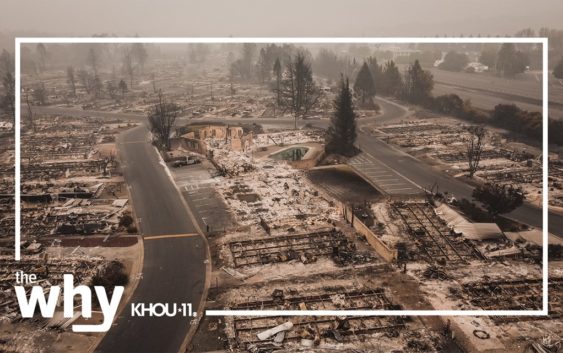- Carolina Beach is warning of potential King Tide flooding
- NCDEQ launches Hurricane Helene recovery grants program
- Why no hurricanes made landfall in the US in 2025
- Florence to begin interviewing police chief finalists in January
- A West Texas county wants to better prepare for floods. Paying for it will be tricky.
Why could living with pollution from wildfires raise your risk of developing dementia?

New research suggests there is a link between particle pollution and dementia.
HOUSTON — We already know air pollution can be harmful to people with asthma from the very young to the very old.
Now new research suggests that pollution puts all of us at risk of developing dementia.
A study looked at 28,000 adults and saw 15% of them developed dementia in a 10-year period. The higher the concentration of particle pollution in their area, the greater the risk of cognitive decline.
So what is particle pollution?
It’s a mix of solid and liquid droplets floating in the air. The most common sources are coal and natural gas-fired plants, cars… agriculture, and wildfires. It is also very tiny, which can allow it to travel past some of your body’s usual defenses, meaning it can get stuck in your lungs or travel into your bloodstream.
The study found that dementia rates were highest with agricultural and wildfire pollution.
One of the researchers who worked on the study told CNN that the large amounts of pesticides used in agriculture could be to blame. When it comes to wildfires, it is important to remember that it is not just trees that burn, but homes, cars, and gas stations all go up in flames, creating a toxic mix of pollution.
While the scientists say more research needs to be done, the results so far suggest more needs to be done to improve the air we breathe.